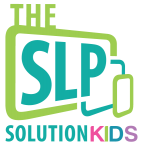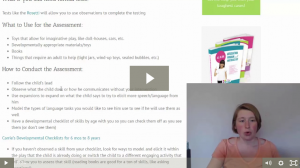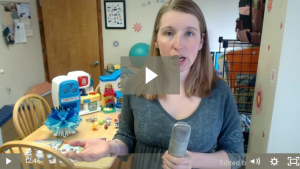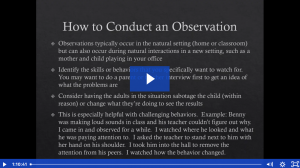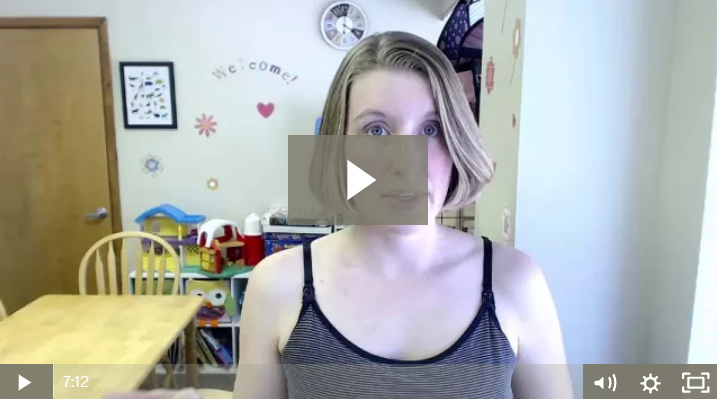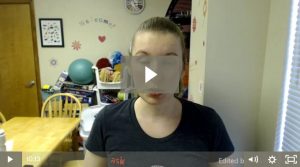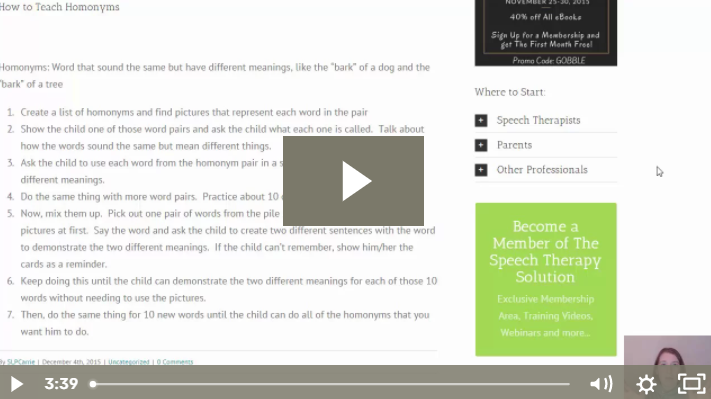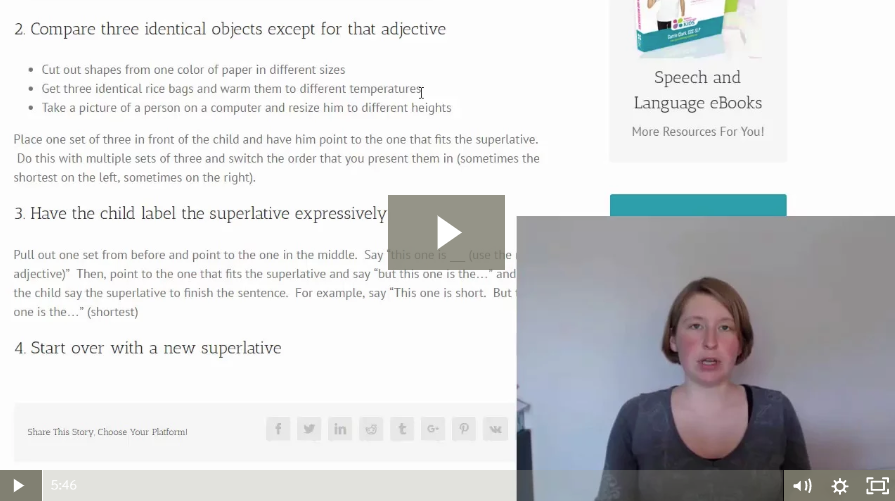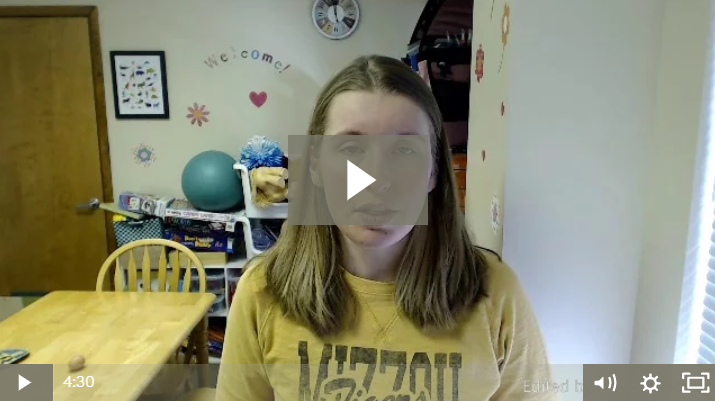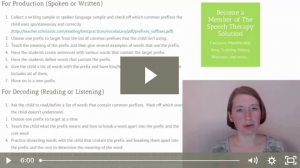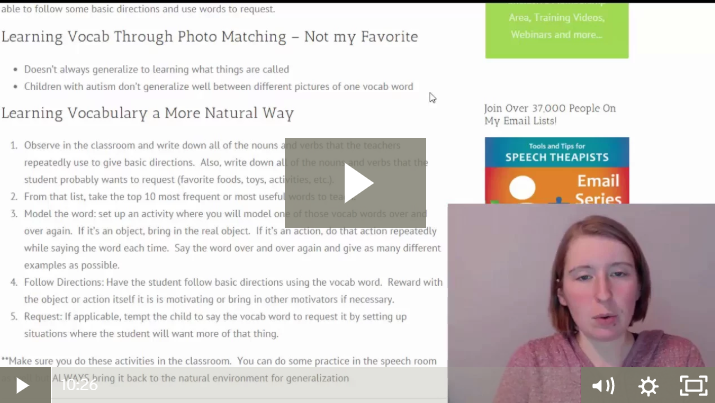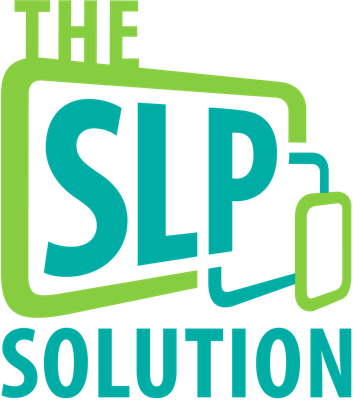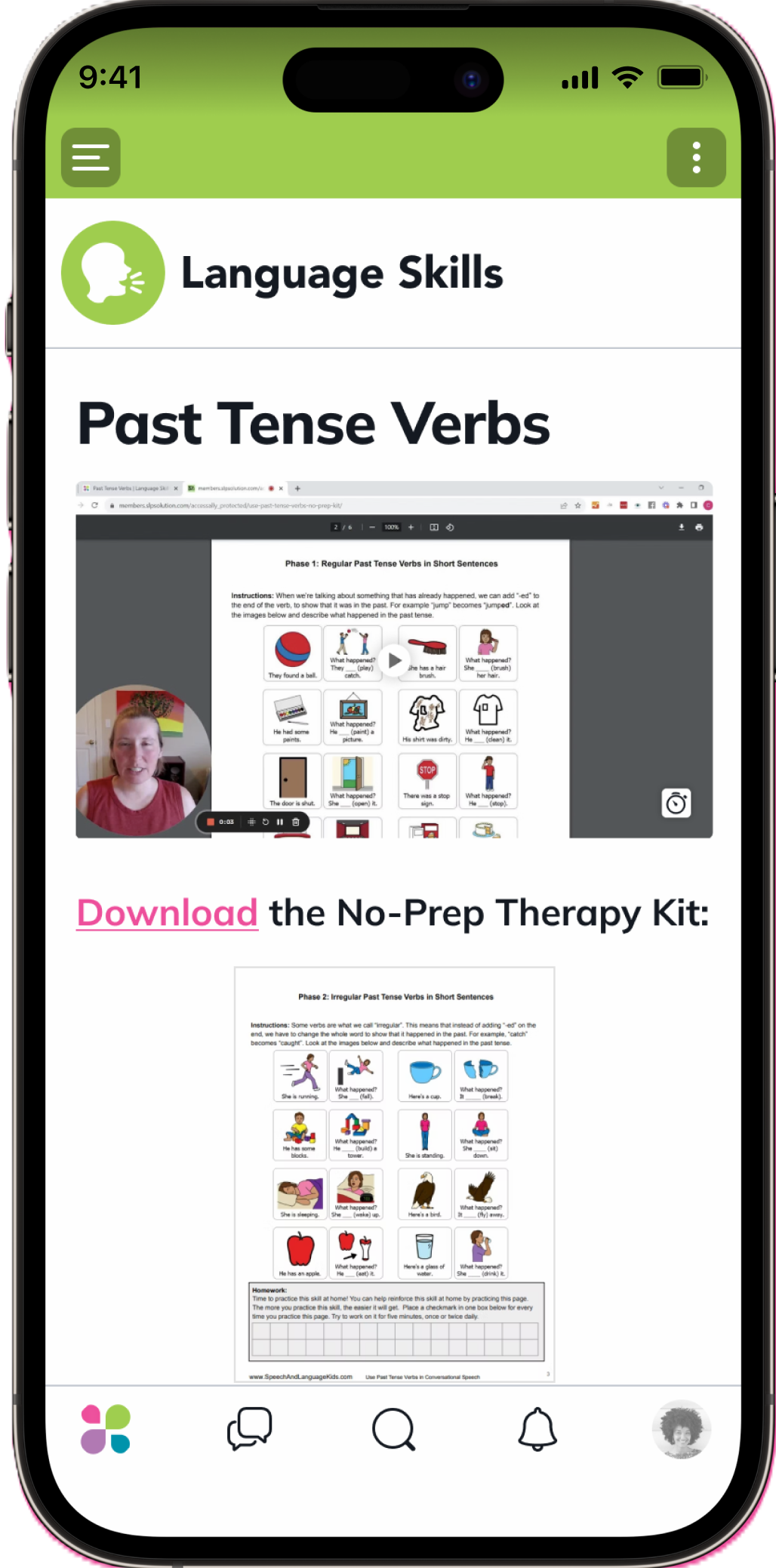Condition: Vocabulary/Semantics Delay
Definition:
Most of our children with language disorders will struggle to learn vocabulary in one way or another. For very young children, we focus on teaching them the specific words that they will need to be able to communicate functionally. For older children, we work on teaching them strategies that will help them to learn words themselves. Here’s a breakdown of the whole continuum for teaching vocabulary to children.
Developmental Norms:
Age Approximate Words in Expressive Vocabulary
12 months 2 to 6 words other than mama and dada
15 months 10
18 months 50
24 months 200-300
30 months 450
36 months (3 years) 1,000
42 months 1,200
48 months (4 years) 1,600
54 months 1,900
60 months (5 years) 2,200-2,500
6 years 2,600-7,000
12 years 50,000
Source: https://speechhearing.columbian.gwu.edu/sites/g/files/zaxdzs1996/f/downloads/Milestonesguide.pdf
Older Children:
Obviously, these vocabulary milestones are helpful for very young children who are only saying a few words. But once you get past 10-20 words in a vocabulary, it becomes difficult for a parent/educator to count all of the words that a child says. It would obviously not be reasonable to ask a parent of a 4-year old if their child’s vocabulary is above 1,600 words. For these children, we tend to look at how they are able to use vocabulary in their everyday life. Are they able to follow basic directions and use words to ask for the things they need? Are they able to ask and answer questions about the world around them? Are they able to learn new vocabulary words in their schoolwork and use them appropriately?
Evaluation:
Evaluation of vocabulary skills should be included in a full, comprehensive evaluation of speech/language skills. Here are some things to look for during your evaluation that may indicate difficulty with semantics or vocabulary:
Deficits in semantics include
- slower rate of vocabulary development than that of typically developing children (not attributed to second language acquisition);
- late acquisition of first words and word combinations;
- delays in verb acquisition, particularly in languages in which verbs are highly inflected morphologically;
- poor fast-mapping (after a brief or single encounter) of a new word to its referent;
- difficulty understanding new words, particularly action words;
- word-finding difficulties;
- slower confrontation naming that may reflect less rich and less elaborate semantic memory networks;
- use of filler words like “um” to take up time while the child is searching for a word or formulating thoughts;
- difficulty monitoring comprehension;
- difficulty requesting clarification;
- difficulty understanding questions and following directions that are heard;
- difficulty paraphrasing information;
- problems comprehending and using synonyms and antonyms, multiple-meaning words, and figurative language (e.g., idioms, metaphors, proverbs, humor, poetic language);
- poor organization of narratives and expository discourse (impacts ability to convey intended meaning);
- poor comprehension of narrative or expository text, particularly when it is necessary to draw inferences from literal content or when expository text is associated with different academic disciplines.
Source: https://www.asha.org/practice-portal/clinical-topics/spoken-language-disorders/#collapse_2
Here are some additional resources when it comes to evaluating this condition:
Have a child who can’t sit down for standardized assessments? Find out here how to conduct a play-based assessment instead.
How to Collect a Language Sample
A language sample can be a great part of a full evaluation. Learn how I collect a language sample here.
Suggested Goals and Materials:
The results of the assessment process should help guide what you will target in therapy. Here are some goals that may be helpful for this condition. You can click on one of the goals below to learn more. Or, scroll down to the therapy section for more in-depth resources and support for treating this condition. Click on a goal to see related materials.
Therapy:
Here is a basic order to the types of vocabulary that children typically use. You can use this framework when considering goals to write for a child:
- Functional Vocabulary: Student will learn and use common first words functionally to follow directions and communicate basic wants and needs.
- Basic Categories Vocabulary: Student will learn basic vocabulary words and understand how to put them into basic categories.
- Curriculum-Based Vocabulary: Student will learn words that are based on curriculum units and use those words functionally in the school environment and in school assignments.
- Building Vocabulary-Learning Skills: Student will know and use vocabulary-learning skills when approaching unfamiliar words in school work and in daily living activities.
Here are some more resources and information that may help you when it comes to treating this condition.
How to Target Vocabulary to Preschoolers
(Push Play Above to Watch)
